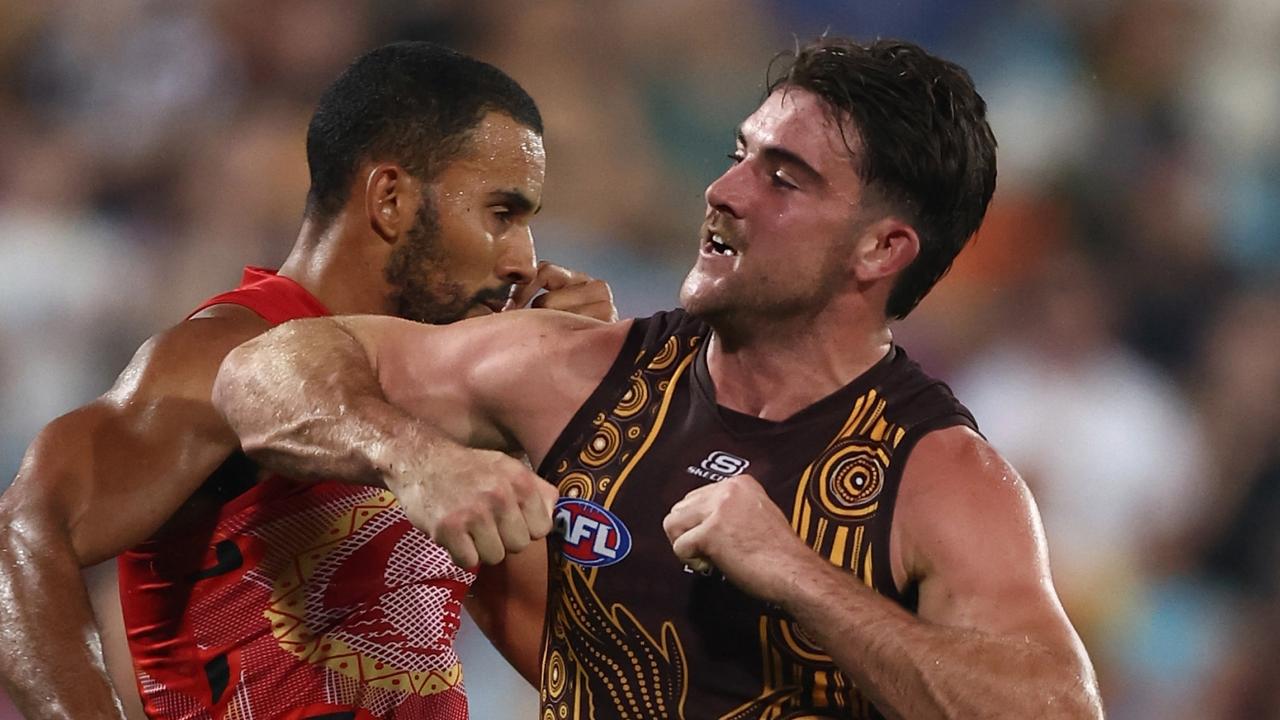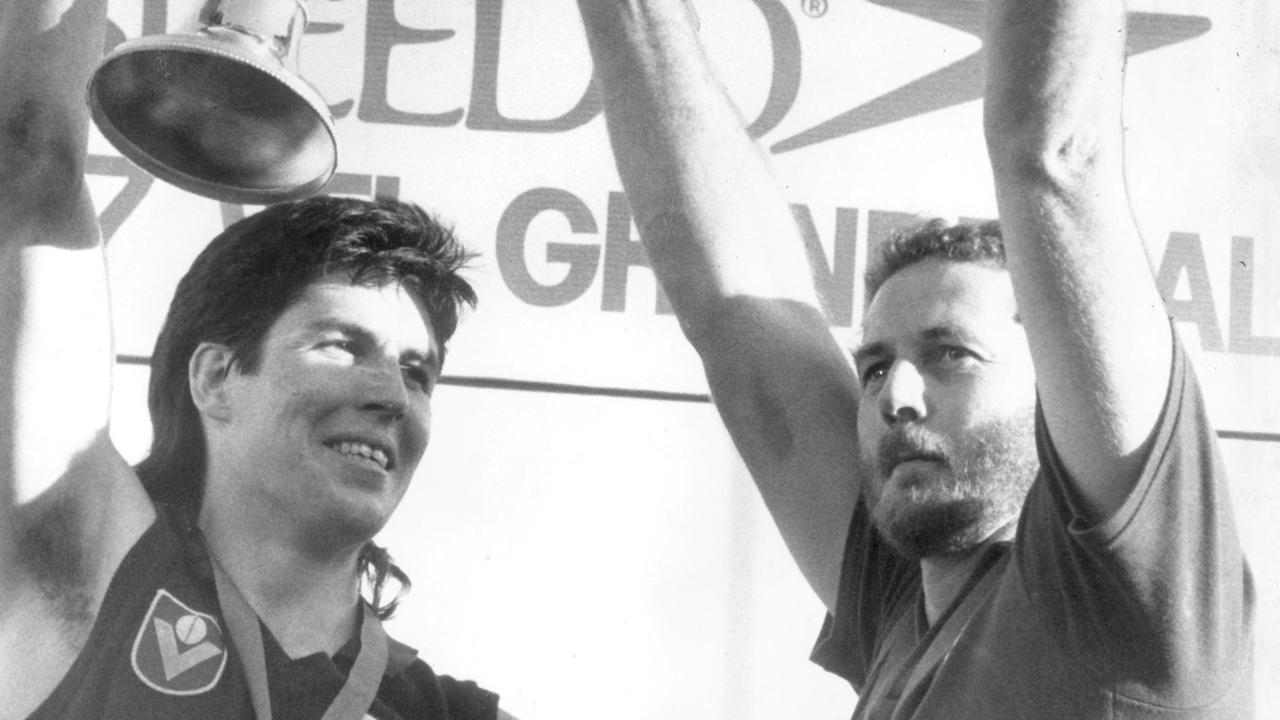Mark Robinson: Figures show the bye before the AFL finals is brutally unfair to top teams and it’s time for change
Eddie McGuire’s ambitious blueprint for the future of footy had a lot of big ideas. Mark Robinson explains which key points the ex-Pie’s president got right.
AFL News
Don't miss out on the headlines from AFL News. Followed categories will be added to My News.
Eddie McGuire’s ambitious blueprint to include Tasmania and Northern Territory teams in a 20-team AFL would eradicate the greatest single injustice plaguing the finals system.
McGuire proposed a 12-team finals series, mainly to help fund the expansion.
Twelve would be a bit extravagant in a 20-team competition, but a 10-team finals series — half the competing teams — seems workable and acceptable.
The initial response to McGuire’s dream plan, which you’d think has been presented to Gillon McLachlan and Steve Hocking, was lukewarm.
The reflex reaction to these big-ticket items is to scour for reasons to say no, rather than enthusiastically find reasons to say yes and support the cause.
Not everything McGuire proposed I agreed with, but, philosophically, I’m on board.
The support of talent pathways, training and medical facilities, stadiums and government funding makes Tasmania and the NT (combined with far north Queensland) achievable if enough bodies want to make it achievable.
Unquestionably, the proposed 20-round season and revamped finals system surely is more appealing than the inadequacies of the current compromised 23-round season and brutally unfair finals system.
Watch the 2021 Toyota AFL Premiership Season. Every match of every round Live on Kayo. New to Kayo? Try 14-Days Free Now >
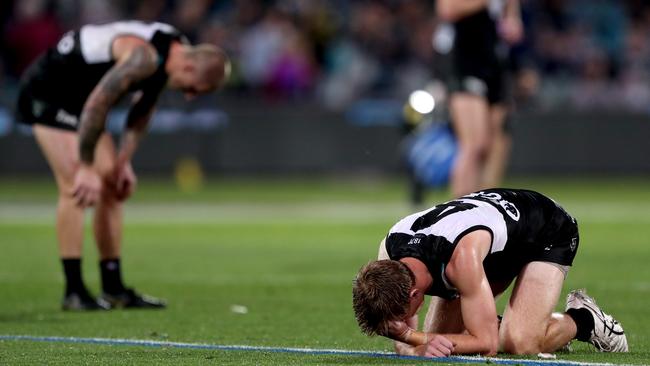
Initially, I was a supporter of the pre-finals bye — born, you would suspect, from the bewitching Western Bulldogs run from the elimination final to premiers in 2016 — but it now looks to have become unfair to the two teams who win the qualifying finals.
Last year, it was the Brisbane Lions (second in the home-and-away season) over Richmond (third) and Port Adelaide (first) over Geelong (fourth).
But the Lions and Power then lost their preliminary final.
The Lions played Carlton in the final home-and-away game on September 19 before the season stopped for a week off — introduced for integrity reasons.
The Lions then beat Richmond in the first final on October 2. The Lions then lost to Geelong on October 17. They played one game in 26 days.
Port Adelaide’s equation was one game in 25 days. They lost their prelim to Richmond.
Last year there were multiple four-day breaks between matches. In a regular season, teams average seven-day breaks between games.
So the prevailing belief that a pre-finals bye — which keeps teams out of action for around 14 days — is good and fair for football is absurd.
The AFL has a habit of making rules on the run and it’s not too late for headquarters to this year restore integrity to the final series and cancel the pre-finals bye.
It was introduced for the 2016 season and then for the following five years the AFL has cited finals fixture flexibility, fitter teams, strong ticket sales and television ratings as the main benefits.
Nothing is ever mentioned about the disadvantage for top-ranked teams having to play once in three-and-a-half weeks.
Surely finals integrity wins over fitness and flexibility.
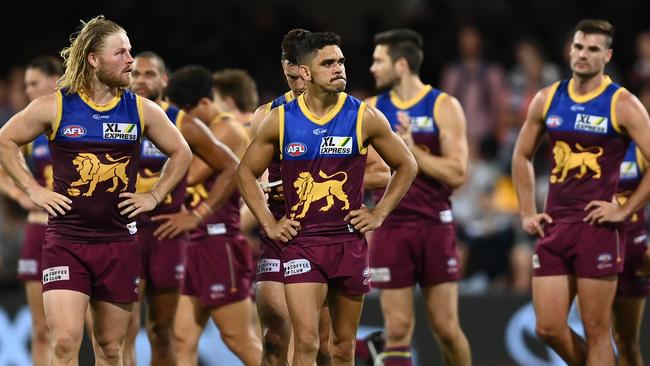
From 2000-2015, 75 per cent of teams who won their qualifying final (1 v 4 and 2 v 3) also won the preliminary final. Not once did both teams lose the preliminary final in the same year.
From 2016-2020, only 40 per cent of teams who won the qualifying final then won the preliminary final.
The difference in the past five years has been significant.
As one club official said: “Every data analyst in the world would red flag that change.’’
Clearly, the benefit of finishing in the top four and winning the qualifying final is evaporating.
Seasoned footy people would argue it is scandalous.
A 23-round season is a battle of attrition and to earn the week off you had to win the qualifying final — which, at that stage of a seven-month season, was welcomed.
Likewise, teams that scrape into the top eight do not deserve a freshen up — at any stage.
The psychological impact of dealing with the “double bye’’ in September can no longer be ignored.
Mentally, players are wired to compete weekly and, it can be argued, they can lose their edge and rhythm during a drastically drawn-out preparation.
Every coach and player tells us training cannot replicate match play.
So, for example, Brisbane’s come down from their insanely intense finals win over the Tigers last year stays with them for two weeks.
Then, supposedly, it’s about clicking the fingers to reach that high-level performance again — robots, not players, with an on/off button.
Not surprisingly, the Lions came out flat against Geelong in their preliminary final and were soundly beaten.
RELATED: THURSDAY NIGHT FOOTY MUST BECOME A PERMANENT FIXTURE
MORE ROBBO: YOUNG BOMBERS QUICKLY EARNING RESPECT OF RIVALS
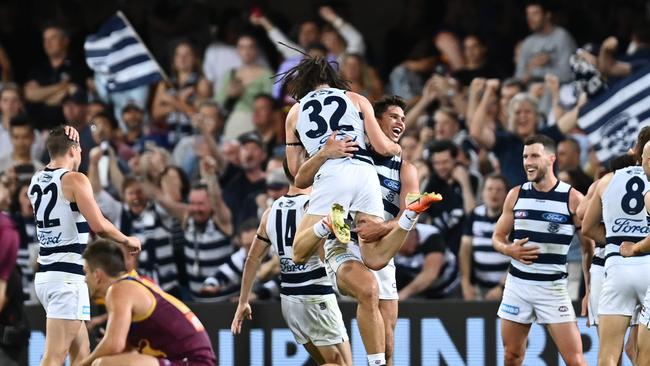
This system rails against the routine of play, recover, review and train for seven days and play again.
The team playing every week of the finals should be ready to play - because that is their routine.
The bye was introduced for integrity issues, so teams wouldn’t rest players in the final week of the home-and-away season.
Instead, all finals teams have a week’s rest and, unfortunately, for the qualifying winner another week’s rest after that.
So the AFL should scrap the pre-finals bye. But if we were to introduce a 10-team finals format under McGuire’s brave new 20-team world, the bye would have to be dumped.
Instead, only top two teams would be given a week off.
Teams that finished from third to 10th would contest the first week of the finals — but the teams that finish third and fourth would get a double chance.
After that every game is a knockout final. The top two teams would have had their advantage.
It would have far more integrity than the current system.
More Coverage
Originally published as Mark Robinson: Figures show the bye before the AFL finals is brutally unfair to top teams and it’s time for change


